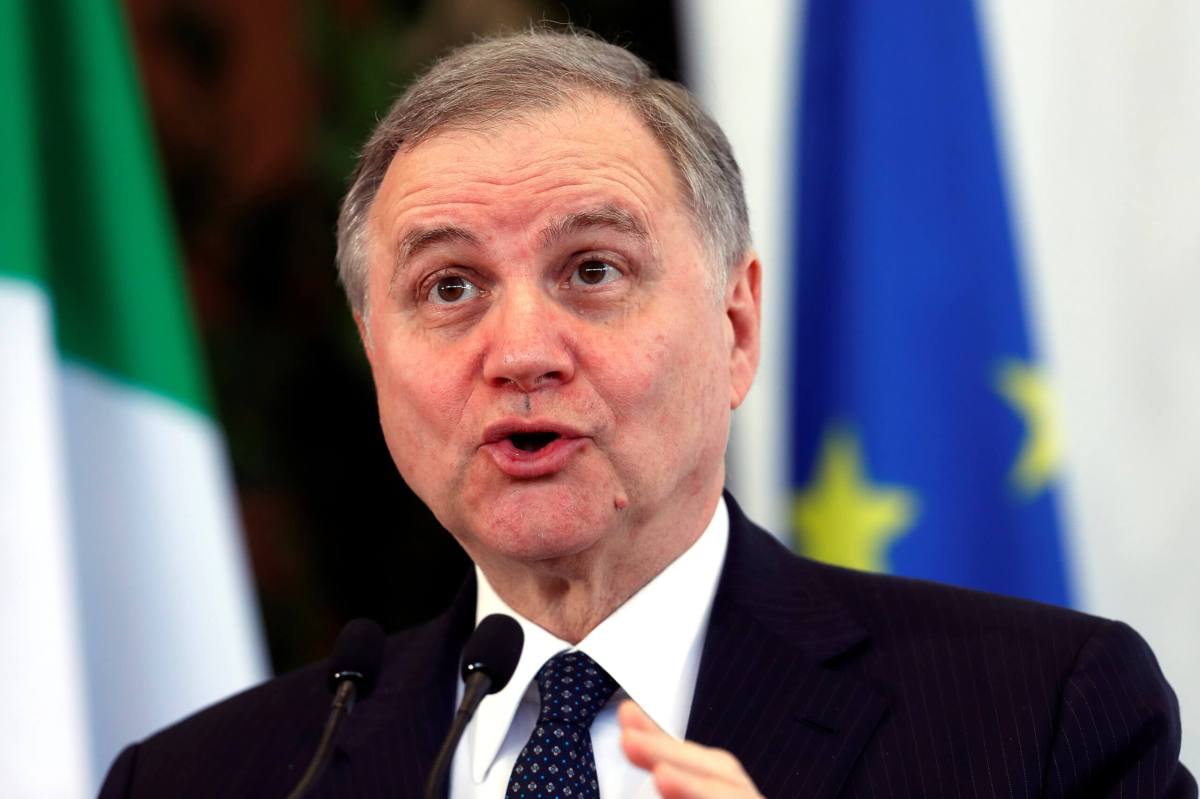By Giuseppe Fonte and Gavin Jones
ROME (Reuters) – Bank of Italy Governor Ignazio Visco on Wednesday backed a contested reform of the euro zone’s bailout fund and said it needed to pave the way for broader euro zone financial integration.
The reform divides Italy’s ruling parties. The 5-Star Movement is against signing off on it until plans for a wider European banking union become clearer, while the center-left Democratic Party (PD) supports it.
Prime Minister Giuseppe Conte, a technocrat from neither party, is trying to broker a deal between them while fending off fierce attacks from Matteo Salvini’s right-wing League, which has accused the government of “betrayal” over the issue.
“The reform proposal marks a step in the right direction,” Visco told a parliamentary panel.
He said the most positive aspect of the reform of the fund, known as the European Stability Mechanism (ESM), was that it introduces a financial backstop to the euro zone’s resolution fund for ailing banks.
Euro zone leaders were due to sign off on the reform next week, but 5-Star has instructed Conte to seek a delay.
The proposed changes to the ESM would make it the backstop for the bloc’s bank resolution fund, give it a bigger role in handling financial crises and, if required, facilitate the restructuring of government debt.
The reform would also reduce the risk of investors holding out for a better deal in a potential sovereign debt restructuring, facilitating the restructuring process.
“ENORMOUS RISKS”
Some economists who have expressed concerns about the reform fear that making debt restructuring easier could also make it more likely.
Visco himself said in a speech last month that the mere announcement of a debt restructuring mechanism carried a “huge risk”.
“Just continuing to speak about sovereign debt restructuring carries enormous risks,” Visco told parliament’s joint budget committee on Wednesday, elaborating on his Nov. 15 speech.
He said it was positive that the ESM reform does not contain an automatic restructuring mechanism, and said new conditions introduced to reduce the risk of investors blocking a restructuring should lower debt costs rather than increase them.
Visco said the best way to convince doubters about the ESM reform was to make it “a starting point” for broader euro zone financial integration.
He called for a euro zone safe asset, a centralized budget capacity and the completion of banking union, and said Italy needs to reduce its public debt which is proportionally the highest in the euro zone after Greece’s.
“A country with a high public debt, especially if it has a major economic weight, must put itself in a position to avoid having to make use of the ESM,” he said.
Italian government officials have suggested Rome may refuse to sign off on the ESM reform until it gets a guarantee that a proposal from Germany to limit or risk-weight banks’ holdings of sovereign bonds will not be approved.
This change is anathema to Rome, because most of Italy’s sovereign debt is held domestically by financial institutions and households.
Visco did not rule out the German proposal but said it should not make headway unless Italy also won some concessions.
“Limits to the concentration of sovereign debt held by banks…could be taken into consideration, but only if at the same time the euro zone decides to equip itself with a common safe asset,” he said.
(Reporting by Giuseppe Fonte, writing by Gavin Jones; Editing by Gareth Jones)
























